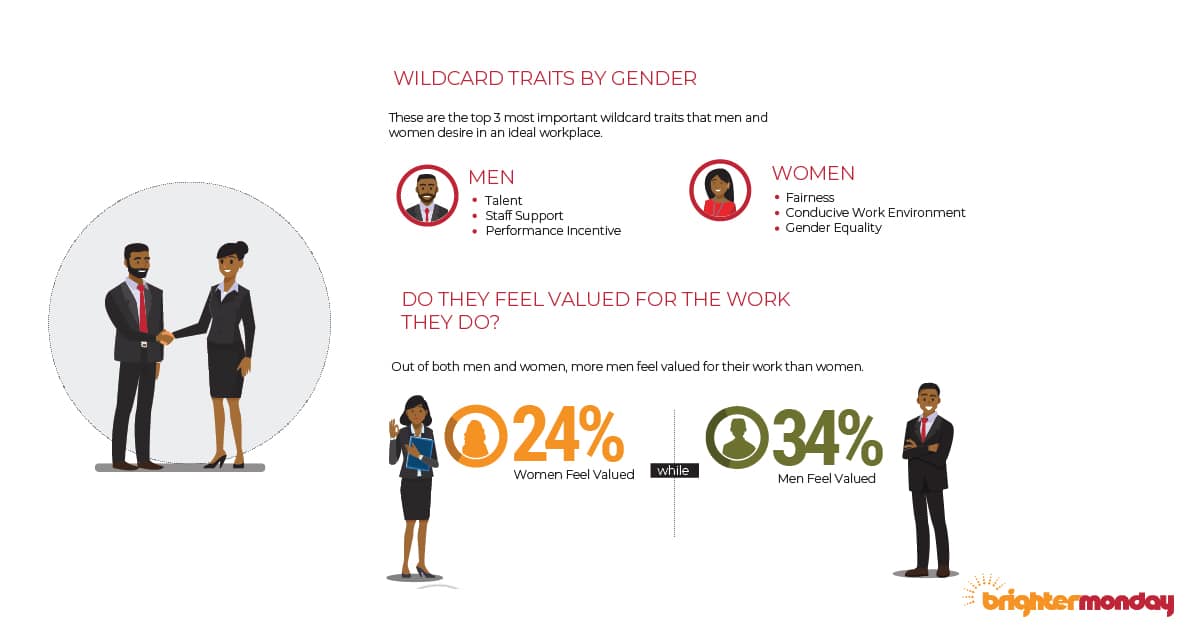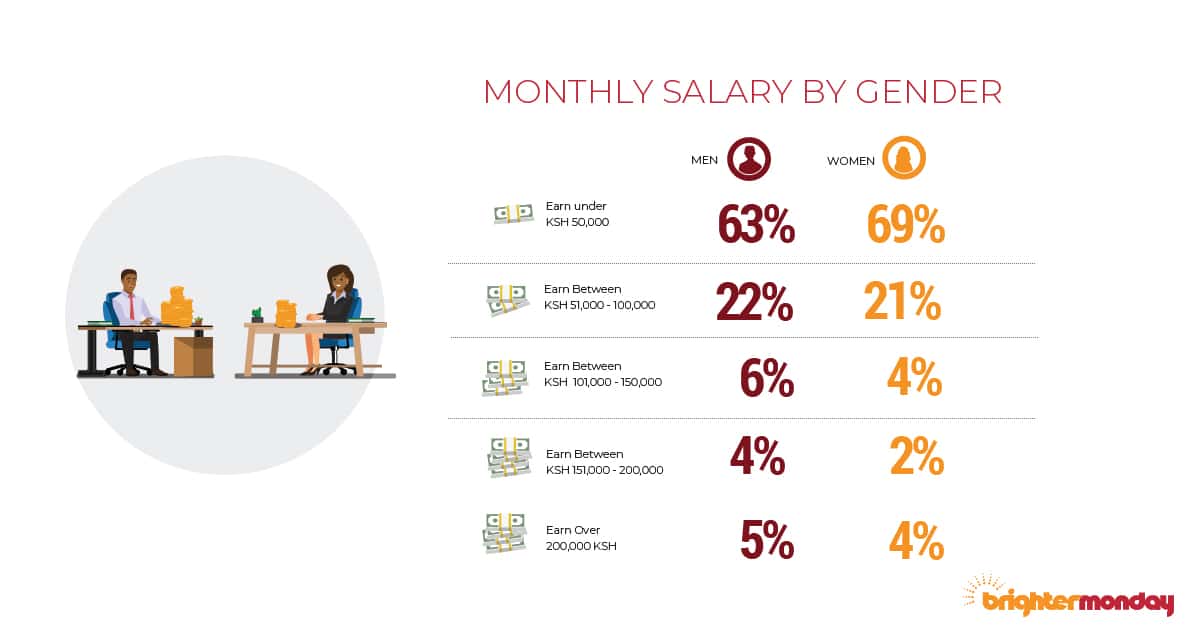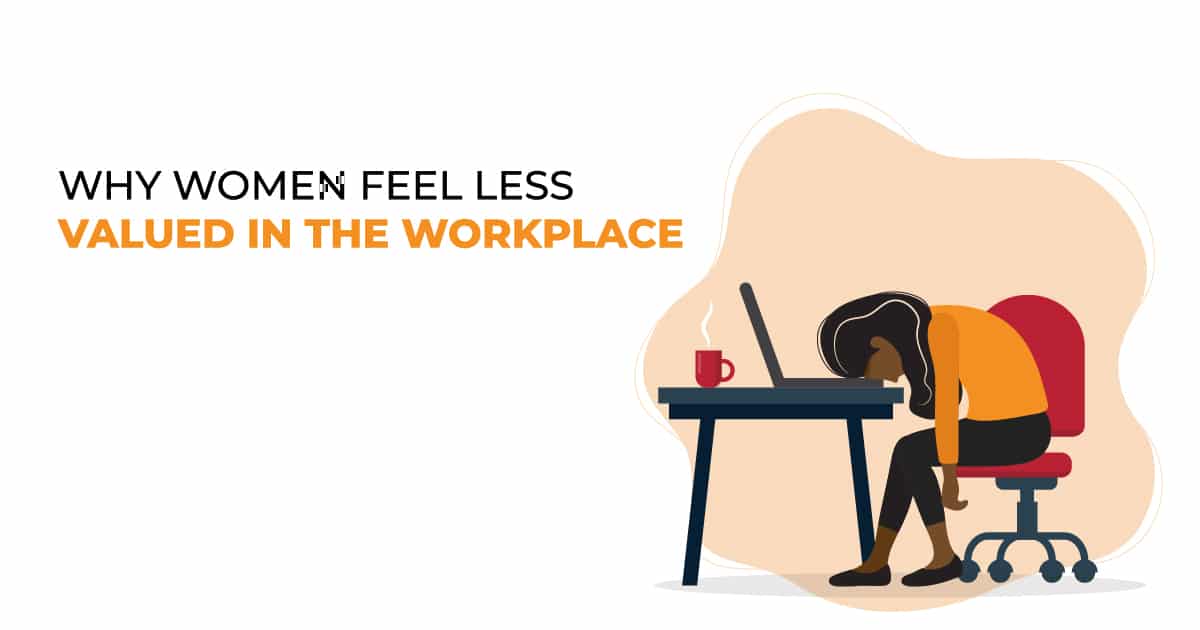Women in the workplace have made great strides but inequality still exists in most companies in Kenya. The issue of gender disparities was tackled in a 3-pronged approach in the Best 100 Companies to Work for in Kenya 2019. These are value for work done, job level and remuneration.
The Best 100 Companies to Work for in Kenya 2019 report revealed that 24% of women felt that their employers valued them for the work they did as compared to 34% or their male counterparts.

The report also showed that men hold more senior positions in the workplace than women even though they hold lesser entry-level positions and same mid-level distribution.

This means that they catch up with their female counterparts in the mid-level then surpass them at the senior positions. This also translates to remuneration and benefits allocation. Men generally occupy a higher monthly percentage across all job-level demographics.
Read this article about the Gender Pay Gap in Kenya.
Table of Contents
What Exactly is the Issue with Gender Disparities in the Workplace?

The problem here is not about achievement. Women have caught up with their male counterparts in the workplace where education and skills are concerned. Yet the workplace still does not view workers as whole people but as male and female employees.
Traditional Roles and Stereotypes
When cultural and traditional role segregation comes in, men automatically get the ‘more taxing and bigger roles’ while the ‘delicate ones’ are left for women. Also, where it comes to young adults balancing family roles and work, women end up shouldering nearly all care giving responsibilities. This automatically disadvantages women in the workplace because their time is split between two demanding roles. It is, therefore, unfair to expect to fairly compete with their male counterparts for promotions and senior roles.
The Issue of Unequal Pay
Local and international research has shown that women earn approximately 80% of what their male counterparts in the same role, possessing the same academic background and experience earn.
The fact that less female respondents in the Best 100 Companies report feel that they are valued by their employer is a testament to this. This problem results in many negative effects on the female employees including feelings of bitterness, anger and envy. Imagine discovering you are paid less than someone else in your department doing the same job with similar or less effort. Such feelings obviously affect performance and effectiveness of someone’s role. Some people might even quit prematurely.
Existing Barriers that Stand in the Way of Better Pay and Advancement for Women
Most likely, you have come across the word “glass ceiling” as a metaphor of barriers that hold women back from achieving their full potential. While barriers against advancement exist, most companies avoid solving them because they will then be admitting that their workplace has been intentionally discriminating against female candidates ad employees. Either way, companies should review their processes and take out any biases that result in unintentional discrimination.
Other than glass ceiling, below are some of these barriers;
Glass Door
These are barriers that prevent women from being hired for senior and high-paying positions. It is founded in the conventional societal stereotypes that categorize jobs for men and women thus steering female candidates and employees to “feminine jobs suited to their physiological and genetic makeup”. These stereotypical positions and roles ultimately set women up to gender-based pay.
Glass Cliff
This is experienced in many facets of societal life not just in the workplace. It describes how women are treated when they achieve senior or leadership positions. They are held to a higher standard as compared to their male peers and are subjected to a more strict scale. This often leads to bad reviews and stagnation in opportunities and salary options.
Glass Wall
Some female employees might face barriers while attempting to grow laterally in a company. For instance, a female marketing professional might find it more difficult to shadow an accountant and eventually learn skills that will see the switch departments than their male counterpart.
Glass Elevator
This is the practice of unusually fast promotions that male employees get when working in traditional feminine jobs like customer service, nursing etc, even when they have less work experience than their female counterparts. This comes from societal and cultural conditioning that positions men to automatically go for bigger challenges more than women.
It’s Time to Address these Issues
Below are steps employers and companies can take to ensure fairness, diversity and inclusion in the workplace.
- Institute diversity in panels that decide hiring and promotion practices. This will ensure diversity and inclusion is maintained and the best candidate is hired or promoted based on merit.
- Understand how bias and stereotypes infringe professional practices and identify ways of ensuring they are taken out of processes.
- Ensure role titles and the job descriptions are gender neutral when hiring and promoting. For instance sales person instead of salesman.
- Supporting primary caregivers in families (which are mostly female employees) by introducing flexi-schedules and times. This shows a true desire to be inclusive.





